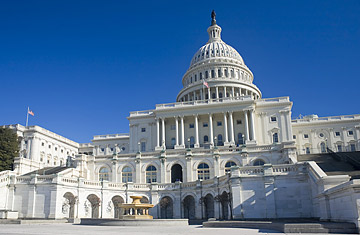
Day 95
April 24, 2009
"It'll be like a declaration of war."
—Michael Enzi, Wyoming Senator and the top Republican on the Senate Health, Education, Labor and Pensions Committee, responding to reports that the Obama Administration may try to fast-track health-care legislation without GOP support
"They're suffering from political amnesia — they fail to remember a dozen times now they've used reconciliation for very substantial things."
—Dick Durbin, Democratic Senator from Illinois, saying a few days earlier that Republicans had relied on the same tactic in past years when they controlled the Senate
A New York Times report saying Democrats are considering using the procedure known as reconciliation to clear the way for Senate passage of a comprehensive health bill with only a majority of 51 votes rather than a filibuster-proof 60 sparks some controversy on the Hill. Republicans use it as another example of the Obama Administration's not acting in the spirit of bipartisanship as promised. Some leading Democrats, such as Senator Max Baucus of Montana, speak out against the tactic. But others see it as a valuable option in order to get health-care reform moving along, pointing out that Bush had used the same approach for passing tax cuts in his first term.
Meanwhile, Joint Chiefs of Staff Chair Admiral Michael Mullen says he's "extremely concerned" about the Taliban's inching closer toward Islamabad and warns Pakistanis that they need to focus on the terrorism threat in their country. General David Petraeus, U.S. commander of Central Command, makes similar remarks during his testimony on the Hill as he asks for funding to help the Pakistani military.
Obama puts his focus on higher education, saying he's pushing for an overhaul of the way the government distributes student loans and hopes to see a higher percentage of college graduates by the end of the next decade.